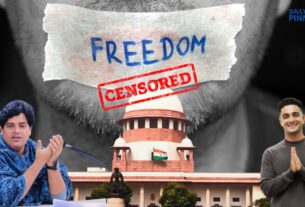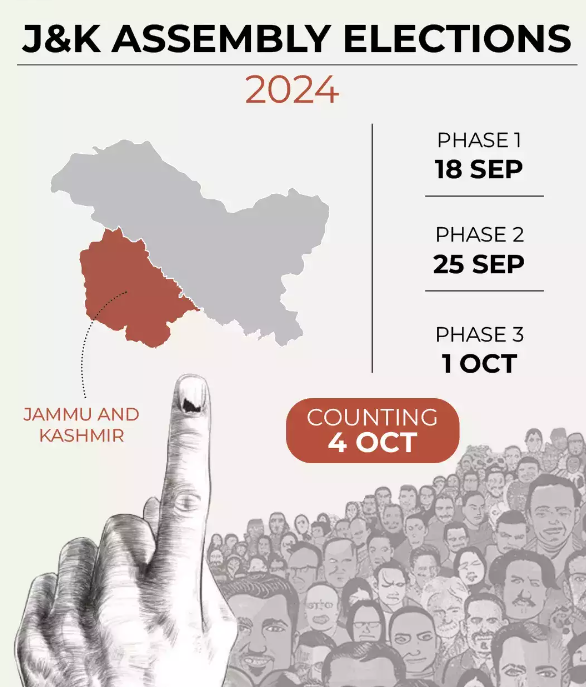The very essence of a democratic government lies in the ability to foster discussion and debate, even if it means delaying reforms that may be necessary but contentious. This principle becomes particularly crucial when the matter at hand involves the rights of religious minorities.
The recent decision by the Indian government to refer the Waqf (Amendment) Bill to a Joint Parliamentary Committee (JPC) after facing significant opposition, even from within its own ranks, underscores this democratic ideal. But does it also highlight deeper issues with the proposed legislation?
What is Waqf Amendment Bill 2024?
The Waqf (Amendment) Bill, which seeks to rename the Waqf Act of 1995 as the Unified Waqf Management, Empowerment, Efficiency, and Development Act, 1995, is designed to address the shortcomings in the management of Waqf properties as highlighted by several committees, including the Rajinder Sachar Committee.
The proposed changes, however, have sparked controversy, especially regarding the inclusion of non-Muslims in the central Waqf council, state Waqf boards, and Waqf tribunals. The bill aims to “broaden the base” of these bodies by incorporating representation from Shia, Sunni, Bohra, Agakhani, and other Muslim communities, along with the mandatory inclusion of two non-Muslim members.
This proposal has been met with fierce opposition, particularly from those who see it as an infringement on the rights of the Muslim community. Nationalist Congress Party (NCP) MP Supriya Sule has been particularly vocal, arguing that the bill unfairly targets a specific community.
In a passionate plea, she referenced the current situation in Bangladesh, emphasising India’s moral duty to protect its minorities. Sule’s call for the withdrawal of the bill until a fair and just version can be crafted underscores the broader concerns about the intent and timing of the legislation.
The pushback is not limited to opposition parties. According to reports, several of the BJP’s allies, including the Telugu Desam Party (TDP), Jana Sena Party, and Chirag Paswan’s Lok Janshakti Party (LJP), have also advised caution.
While the LJP refrained from directly criticizing the bill, the TDP and JSP urged the government not to push the bill through without a thorough discussion. Their stance highlights a growing unease within the ruling coalition about the potential fallout of passing the bill without a broader consensus.
In an era where the ruling National Democratic Alliance (NDA) has often leveraged its parliamentary majority to pass legislawtion without extensive debate, the decision to refer the Waqf Amendment Bill to a JPC is a significant departure from recent practices. According to Citizens for Justice and Peace (CJP), in 2023 alone, 47 bills were introduced, with 30 of them passed by both houses without referral to any parliamentary committee. This pattern of bypassing detailed scrutiny has raised concerns about the erosion of democratic processes in India.
The formation of a JPC for the Waqf Amendment Bill could be seen as a step toward restoring faith in these processes. It provides a platform for broader consultation and allows for the inclusion of diverse viewpoints, potentially leading to a more balanced and equitable piece of legislation. However, the bill’s controversial provisions and the strong reactions it has elicited suggest that this will not be an easy path.
Public reactions have been equally divided, with some viewing the bill as a necessary reform to modernise Waqf management, while others see it as an unnecessary and potentially harmful intervention in religious affairs. The bill’s critics argue that the inclusion of non-Muslims in Waqf bodies could dilute the Muslim community’s control over its religious properties, undermining the very purpose of these institutions.
As the Joint Parliamentary Committee begins its deliberations, the central question remains: Is the Waqf Amendment Bill a necessary step toward greater inclusivity and efficiency, or is it an overreach that could destabilise religious harmony? The coming months will likely see intense debates, both inside and outside the halls of Parliament, as India grapples with this complex issue.
In the end, whether the bill is deemed correct or incorrect may hinge less on the specifics of its provisions and more on the process through which it is debated and refined. In a democracy, the process is as important as the outcome, and the Waqf Amendment Bill is poised to be a litmus test for India’s democratic values.
Special mention:
For Hindustan Times, Rutvick Mehta wrote about the silver streak of India’s golden boy, Neeraj Chopra, capturing the essence of his journey with grace and grit. Meanwhile, The Times of India brought a heartwarming twist to sportsmanship, sharing how the mother of Pakistan’s Olympic champion referred to Neeraj as both Nadeem’s “dost” and “bhai” in a tale that transcends borders and rivalries. Two stories, two perspectives, but one common thread—Chopra’s unifying spirit.
Other important news include:
As Nobel laureate Professor Muhammad Yunus was sworn in as the head of the interim government in Bangladesh Thursday, Prime Minister Narendra Modi extended his best wishes to Yunus and urged him to ensure “the safety and protection of Hindus and all other minority communities” who have come under attack following the ouster of Prime Minister Sheikh Hasina on August 5, reported Shubhajit Roy for The Indian Express.
Amidst the political upheaval in Bangladesh, India’s diplomatic outreach to the new regime in Dhaka highlights its focus on maintaining stability and people’s interests, writes Sachin Parashar for The Times of India. Meanwhile, the Bangladesh Nationalist Party (BNP) has issued a stern warning that future cooperation with India could be jeopardised if New Delhi continues to support their political rival, Sheikh Hasina, amidst the ongoing crisis in Bangladesh. The BNP’s statement underscores the potential diplomatic strain between the two nations, as India navigates its response to the unfolding political scenario. [The Hindu, The Times of India]
Buddhadeb Bhattacharjee, the last communist chief minister of West Bengal and an apparatchik who repeatedly strayed from convention to emerge as a leader with an independent mind in a regimented party, died at his frugal two-room government apartment in south Kolkata’s Palm Avenue on Thursday morning. He was 80. [Hindustan Times, The Indian Express]
New drugs for weight loss, Alzheimer’s or cancer, that have been approved by top regulatory authorities abroad but are awaiting approval in India, will no longer be required to undergo clinical trials in the country. Pharma companies can now obtain regulatory clearance to sell their products in India if they can demonstrate that their new drugs offer a “significant therapeutic advance over the current standard of care,” and have been approved by regulators in any of six countries or regions, wrote Anonna Dutt for [The Indian Express, The Hindu, The Times of India]
The Election Commission of India (ECI) is under growing pressure from political parties in Jammu and Kashmir, including the BJP, to hold assembly elections by the Supreme Court’s deadline. Amidst this demand, both local and national parties have emphasised the need for timely elections to restore democratic governance in the region. The Hindu’s Peerzada Ashiq, Indian Express’ Naveed Iqbal and Economic Times’ Hakeem Irfan Rashid reported that parties are urging the ECI to act swiftly to ensure the political process is not delayed further, reflecting the high stakes and ongoing political dynamics in Jammu and Kashmir.
Bajaj Finance has landed in hot water, receiving a notice for allegedly evading GST to the tune of â¹341 crore. This significant development, reported by Manu P Toms & Joel Rebello in The Economic Times, highlights the ongoing scrutiny of financial institutions in India and raises and further elaborates that these notices could lead to further investigations and potential financial repercussions for the company.
RBI Governor Shaktikanta Das has emphasised that the central bank cannot overlook rising food inflation when setting monetary policy, signalling a cautious approach amidst ongoing price pressures. Reports highlighted Das’ stance, which diverges from some survey suggestions to downplay food inflation concerns. This perspective underscores the RBI’s balancing act between controlling inflation and supporting economic growth. [The Economic Times, The Hindu, The Indian Express]
Sahil Barua, CEO of Delhivery, argued that quick commerce, not e-commerce, is encroaching on traditional family-owned grocery stores, shifting the retail dynamics in India. Pranav Mukul & Samidha Sharma, captured Barua’s insights in an exclusive interview for The Economic Times, highlighting how the rise of instant delivery services is reshaping consumer habits and challenging the neighbourhood grocery model, more so than the broader e-commerce sector.
Read more: What’s happening in Bangladesh? Story behind Sheikh Hasina’s shocking resignation



